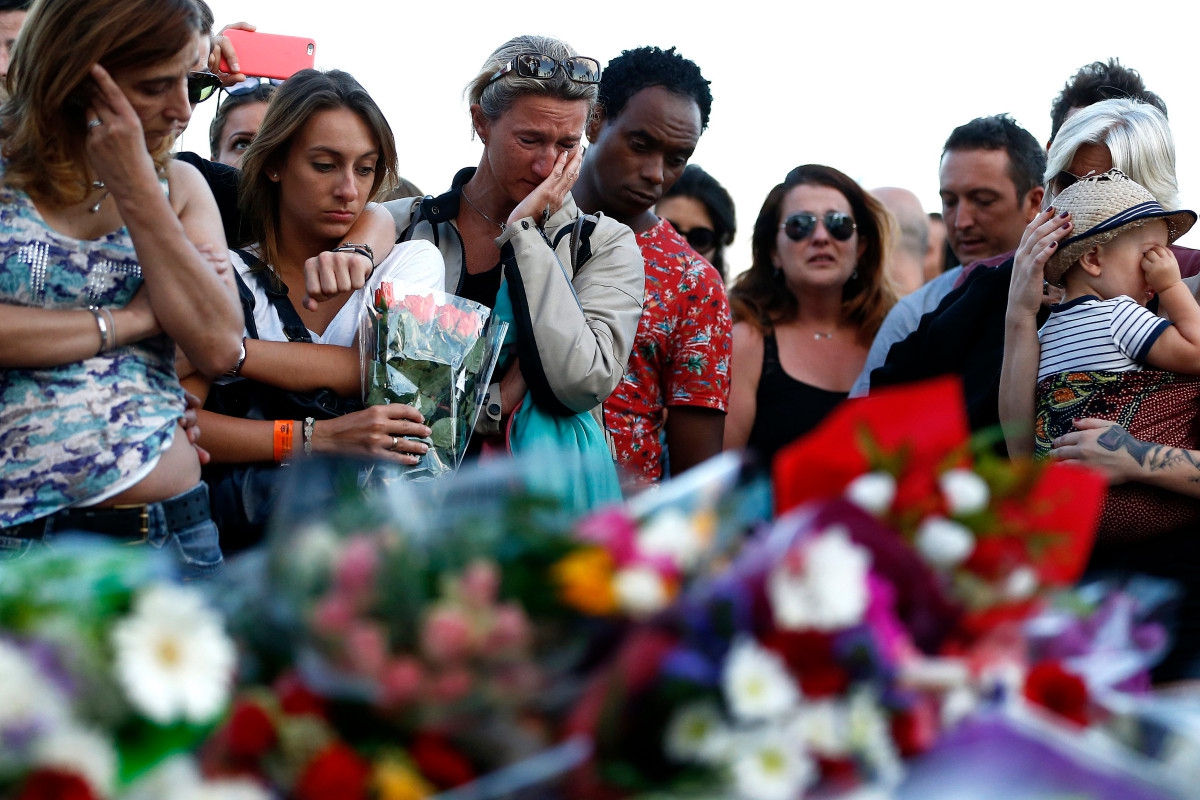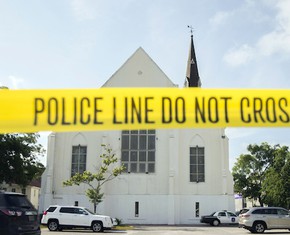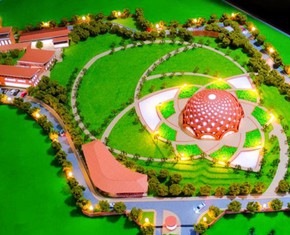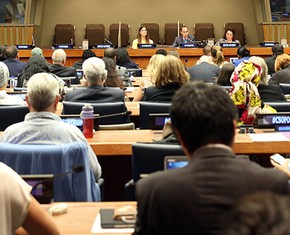The views expressed in our content reflect individual perspectives and do not represent the authoritative views of the Baha'i Faith.
All men must be treated equally. This is inherent in the very nature of humanity. – Abdu’l-Baha, Abdu’l-Baha in London, p. 29.
Listening to the news on National Public Radio this morning, I mourned the deaths and injuries in the latest attack in France—and I thought about the mind of the attacker, trying to understand his insanely murderous actions.
I wondered: what does it take to rent a truck, then drive it through a crowd of innocent people happily celebrating freedom, intentionally mowing down women, children and babies? Can you imagine it?
Only two explanations came to my mind as I pondered those questions—madness or enormous rage.
The driver of the truck, who reportedly wore a helmet and carried a handgun as if he expected to be fired upon, seemed bent on murdering and injuring as many people as he possibly could. Police shot and killed him after his bloody rampage.
I listened to the radio reports, and they filled me with anguish, consternation and pain. France, the cradle of freedom, democracy and human rights, has now experienced three “mass casualty events” in the past 19 months—the Charlie Hebdo massacre, the Bataclan terrorist attacks, and now the truck assault in Nice. As I write this, the death toll from these three attacks stands at 226 people, with hundreds more wounded.
Then, as I was giving the radio all my attention, NPR took a break from the terrible news to thank a sponsor—the Bill and Melinda Gates Foundation, one of the world’s largest non-profit agencies. Their short sponsorship blurb said: “At the Gates Foundation, we believe all lives have equal value.”
While I know the juxtaposition of the news story and the sponsorship blurb had no intentional relation to each other, it immediately struck me that a Western life has much more value to Westerners than the lives of people in Muslim nations—and there lies a big part of the problem. We do not value human lives equally.
Want proof? Eleven days before the rampage in Nice, a truck bomber took the lives of more than 250 innocent civilians in the Karrada district of Baghdad, injuring hundreds more. The massacre happened at midnight during the Islamic fasting month of Ramadan, ensuring that many late night shoppers and diners would be on the streets and in the restaurants.
Did you see, in the Western media, any wall-to-wall coverage of the brutal Baghdad bombing, like we’ve seen of the recent attacks in France or the United States? Did you hear anyone say “Je suis Baghdad?” Did your friends and neighbors talk to you about the bombing in Baghdad, like they certainly did and will about the attacks in France? Did any Western demonstrations of sympathy occur? Did anyone you know overlay an Iraqi flag over their Facebook photo, like so many people have done with the French flag?
Although there may be more, and I hope there were, I know of only one place in the Western world that expressed any public sympathy for the Iraqi victims of that horrific bombing. In Auckland, New Zealand, the Sky Tower—the Southern Hemisphere’s tallest structure—lit up in the colors of the Iraqi flag for one night.
During the war in Vietnam, I once spoke to a Paris-educated Vietcong prisoner. Fluent in English as well as French and Vietnamese, he told me, very angrily and articulately, that he had decided to fight the Americans for one reason—to prove that a Vietnamese life had just as much value as an American life.
In the same way, I know that many Middle Easterners and Africans feel that the value of their lives, and the lives of their families, have been drastically diminished by the Western wars waged in their countries. Drone strikes, aerial bombardments and invasions have all resulted in enormous numbers of civilian deaths—and yet the West seems to disregard and devalue those hundreds of thousands of deaths as the “collateral damage” expected in conflict. This attitude of superiority and the lack of caring that goes with it produces enormous anger, and only exacerbates the desire to inflict the same kind of pain and damage on the West.
Until we achieve oneness by valuing each human life equally, the Baha’i teachings tell us, we will never find our way out of this gruesome cycle of violence, rage and retribution. Terrorism, despite what many of our leaders belligerently proclaim, has no real military solution. We can’t kill our way out of the problem. In fact, more killing just produces more rage, which produces more killing. No amount of firepower and no massing of troops can ever prevent a crazed, infuriated individual from driving a truck through a crowded neighborhood, or setting off a bomb there. Only a gradual easing of the world’s tensions, and a gradual increase in the love and respect we show for human lives everywhere, can ever stop such incessant carnage.
After his visit to England and France in the early part of the twentieth century, Abdu’l-Baha, in his farewell message, pointedly asked the Western nations to “guard and protect the interests and rights of all the nations of the East.” “Before the sight of God,” he counselled the people of the West, reminding them of their professed values, “the rights of all are equal:”
I bid a loving farewell to the people of France and England. I am very much pleased with them. I counsel them that they may day by day strengthen the bond of love and amity to this end, — that they may become the sympathetic embodiment of one nation. — That they may extend themselves to a Universal Brotherhood to guard and protect the interests and rights of all the nations of the East, — that they may unfurl the Divine Banner of justice, — that they may treat each nation as a family composed of the individual children of God and may know that before the sight of God the rights of all are equal. For all of us are the children of one Father. God is at peace with all his children; why should they engage in strife and warfare among themselves? God is showering down kindness; why should the inhabitants of this world exchange unkindness and cruelty? – Abdu’l-Baha, Abdu’l-Baha in London, pp. 122-123.
So if the latest terrorist attacks—no matter where on the planet they occur—have you asking yourself what will stop such insanity, do everything you can to extend respect, love and unity throughout the world.
You May Also Like
Comments

















I can relate to your feelings of discouragement from the day-to-day
encounters with hate speech and the
like we have, and the sabotage of
our bridge-building efforts we often
feel. For Bahai's, though, it's no worse than we should expect: we
know we are in a dying and flailing
old world order before a new time.
It's also good to remember that anger helps to reduce fear in a person, so it's the fear we have to
address in building bridges. It is
too bad that a lot of ...times we can't
even get somebody to calm down
long enough to talk about that rationally!
long or deep enough rage could
alone evolve into madness. After all,
both prejudice and delusion are distortions of reality. Therefore, it also makes sense that collective rage
can become collective madness.
I think that certain of our allies which share America's largely English
origin, but whose smaller size has made them used to being overshadowed and devalued by the
super-powers, namely Canada, Australia, and New Zealand, may
empathize more quickly with the
"less-thans" than we do. ...Getting
your face rubbed in the dirt can be
good for your soul, if you don't get
reactively indignant about it!